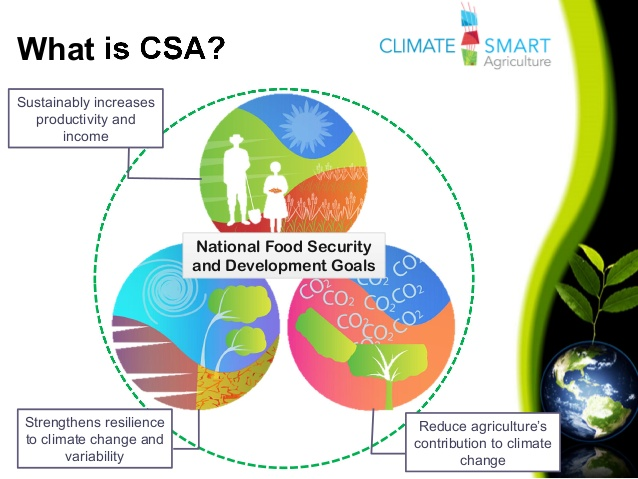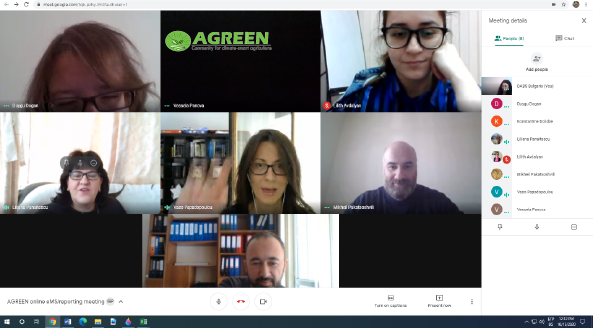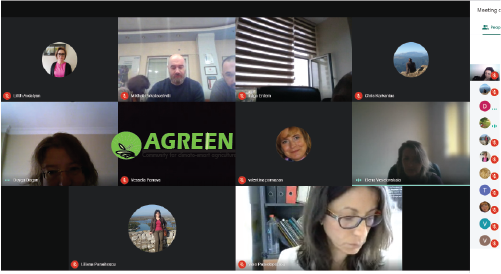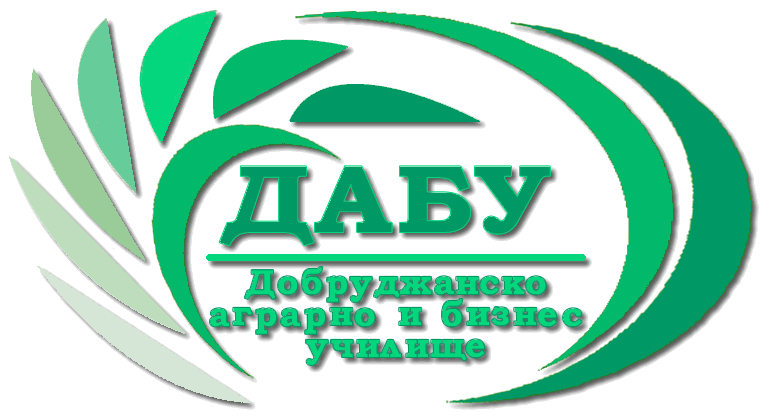An international project aimed at developing training materials for acquiring basic skills needed in the workplace is coming to an end

On October 26 and 27, 2020 in the city of Dobrich were held two Multiplier events for dissemination of the results and presentation of the recourses developed in the frame of project “Workplace Basic Skills Training for Low-Skilled Migrants”
In total of 8 countries are partners in the project, with the leading organization being the “Innovation in Learning Institute” (ILI), Germany, and form Bulgaria the “International Management Institute” was involved as a partner.
The project is aimed at improving the basic skills for low-level educated adults, especially refugees and migrants in four working sectors: Construction, Care, Tourism and Cleaning by developing interactive learning materials for training literacy, numeracy and social skills – key factors for successful labour market integration.
Within the two events, the developed under the project resources were also presented, including Guidelines for trainers of low-skilled adults and migrants and Modules for e-learning in 4 different economic sectors (construction, social care and healthcare, tourism and the cleaning industry). The training modules are available in 10 languages, including Bulgarian, through project online platform and free mobile application.
CONTACTS:

International Management Institute
е-mail: This email address is being protected from spambots. You need JavaScript enabled to view it.
Website: https://mimbg.org/
FOR MORE INFORMATION ABOUT THE PROJECT:
https://www.facebook.com/WorkplaceBasicSkills
https://www.youtube.com/watch?v=SA6ooGUv00Q
The project is financed under the Erasmus + program, contract No. 2018-1-DE02- KA204-005032
This project has been funded with support from the European Commission. The support of the European Commission for the preparation of this publication does not constitute an endorsement of the content that reflects the views only of the authors and not the Commission may be held liable for any use that may be made of the information it contains get into it.
Climate change is turning the lives of farmers upside down

Unpredictable weather patterns, shorter growing seasons, droughts, extreme temperatures, and increased exposure to pests and crop diseases pose daunting problems to smallholder farmers around the world—especially in the Black Sea Basin, where people tend to be more reliant on natural resources. Climate-smart agriculture techniques can help farmers adapt to and prepare for impacts in order to preserve—and even improve—their livelihoods.
With a population expected to balloon to 9.8 billion by 2050, climate-smart agriculture is crucial to global food security, as well: Smallholder farmers currently provide more than 80 percent of the food consumed in large parts of the developing world.
Climate-smart agriculture isn’t distinct from sustainable agriculture; rather it’s a way of combining various sustainable methods to tackle the specific climate challenges of a specific farming community. The first step is to assess the particular climate risks, since a farm facing prolonged water shortages will need different strategies than one confronting frequent flooding, for example. We use a variety of tools to assess the climate risk and vulnerability of a landscape, taking the local ecosystems and the specific crop into account. Finding the right combination to manage a specific farm’s climate challenges — and to build resilience to future impacts — is what makes climate-smart agriculture “smart.”
That's why we at DABS initiated the AGREEN project. More information for the AGREEN project could be found here.
An online partners' meeting for AGREEN was held today

Today, on 15th of October, the meeting we had was really beneficial and fruitful for the whole team. The main aim was to give guidance and clarifications about the Project Progress Report because we have a deadline coming up soon.
The Project partners were informed about the details they are supposed to gather and how to structure different sections.
Next stop was overview of eMS system functionalities and vital highlights.
As for the fact that we are working in digital environment due to certain conditions, we have the honor to be one really well integrated team.
Who said on-line is impossible to work? We work smarter and smoother because of the recognized opportunities.
Revolutions bring disruptions and disruptions bring opportunities.”
Nicky Verd

.png)
Another online partners' meeting was held for the AGREEN project

Yesterday (8th of October 2020) we had a very intense meeting with the project partners of the AGREEN. With the kind assistance of JTS' project officer, we discussed vital management matters, which only strengthened our cooperation and close partnership.
Indeed we have to be united towards the achievement of the project's mission and build the community of like-minded professionals.
"Teamwork:
Coming together is a beginning.
Keeping together is progress.
Working together is a success."
Henry Ford
The climate-smart agriculture is at the focus of a new international project "AGREEN" launched by DABS in June 2020 under the BSB Programme 2014-2020
AGREEN aims to build the transnational networking and knowledge transfer capacities of the entrepreneurs and professionals for the development of climate-smart agriculture in the Black Sea Basin. The project seeks to contribute to the increase of cross-border links for trade and modernization of agricultural and connected sectors in the Black Sea Basin.
- regional brand for agricultural products originating in the Black Sea Basin and produced in a climate-smart way;
- interactive map of logistic centres for wholesale and retail trade in sustainably delivered agricultural produce from the BSB;
- climate-smart crop models, adapted to the environmental, social and economic conditions in the BSB region;
- Internet platform for liaising sustainable producers;
- integrative blended mobility training “Entrepreneurship for Climate-smart Agriculture in the BSB;
- 3 international business conferences on climate-smart agriculture.
The project partners come from 6 different countries:
The project AGREEN brings about the following expected results:
Професии и специалности
Written by Krasimir
The future is rural: the social objectives of the next CAP
Rural areas make up 44% to 80% of every EU country. These diverse territories play home to a wide variety of flora and fauna, wonderful wildlife and natural environments. They provide food and resources that contribute to jobs, growth and prosperity, and help to maintain cultural heritage. Rural areas are truly at the heart of Europe.
It is our collective responsibility to ensure the vitality of rural areas: strengthening rural value chains and local production networks; supporting young farmers and women in agriculture; preserving and protecting our natural resources; and boosting rural innovation and digitisation.
The future common agricultural policy (CAP) will play a fundamental role in addressing these issues by helping Member States prioritise and support vibrant rural life and the development of a modern, sustainable and inclusive agricultural sector.
#EUPollinators: Commission brings attention to the importance of pollinating insects for humanity ahead of 20 May, International Bee Day
With the first day of spring, the European Commission is launching a major communication effort to raise awareness about the decline of wild pollinators, showing how their disappearance would impact our lives, and what everybody can do to help. Raising awareness and engaging society on this issue is part of the first EU Pollinators Initiative adopted in June 2018, which aims to address the decline of wild pollinators in a more targeted and coordinated way across different sectors and policies.
EU Commissioner for Environment, Fisheries and Maritime Affairs Karmenu Vella said: “Our quality of life – and our future – depends on the many services that nature provides for free. Pollination is one of these invisible, but invaluable services, so it is very worrying to learn that some of our top pollinators are at high risk! If we don’t address the reasons behind the decline in wild pollinators, and act urgently to stop it, we and our future generations will pay a very heavy price indeed.”
The communication activities will run in the next two years, creating opportunities for public authorities, researchers, farmers, businesses, and individual citizens to engage in the protection of pollinators.
Background
Training on Soft Skills Assessment and Labor Mobility Support Initiative
During the period 16-19 October 2018 Association “Dobrudja Agro and Business School” (DABS) performed training on Soft Skills Assessment and Labor Mobility Support Initiative for the restaurant and culinary business in the cross-border area. 25 students between 16 and 18 years of age from the Professional high school for tourism “P.K. Yavorov” – Dobrich took part in the training. Lecturers were prof. Dimitrina Kamenova, Ms. Diana Valchanova and Ms. Irena Bairova. The main topics of the event were “Relations with the guest and customer’s profile”, “Cultural awareness, history and culinary traditions in the cross-border area”, “Labor market”, “Presentation skills”, “Digital skills”, “Assessment of soft skills required for culinary sector”. The training was implemented within the framework of “Integrated culinary arts and restaurant sector employment solutions for a skilled and inclusive Romania-Bulgaria cross-border region” Project (ICARUS) – a joint initiative with Association “Choose Your Profession” - Center for Vocational Training, Constanta, Romania.
The project is implemented under the INTERREG V-A Romania - Bulgaria Program, Priority Axis 4: Qualified and Associated Region. The main objective of the project is to facilitate labor mobility in the restaurant/culinary business in the RO-BG cross border (CB) area through joint skill-building and employment mobility support services.
More...
© Copyright 2018
 English (UK)
English (UK)  Български
Български 